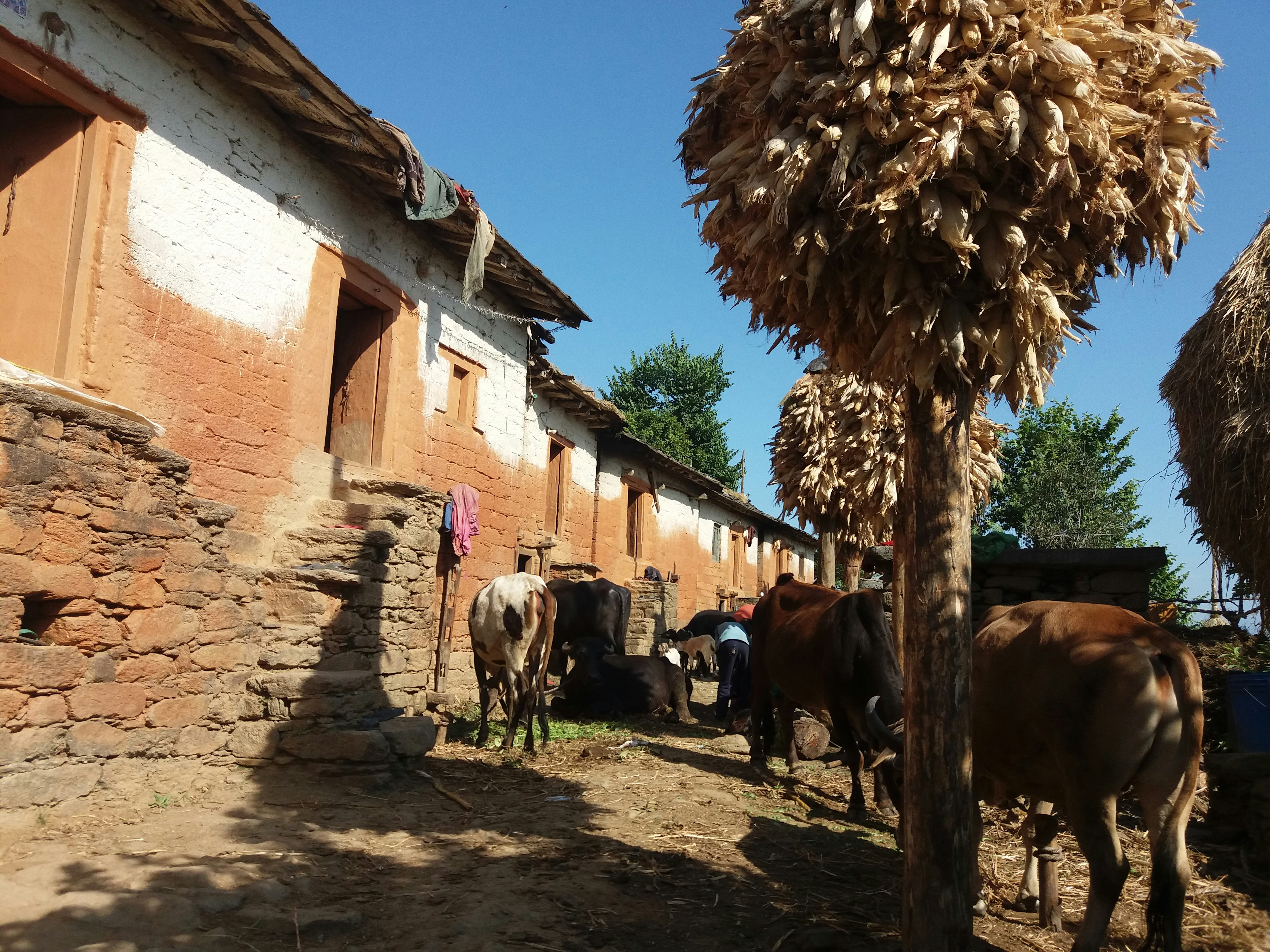Introduction: The Journey Begins
Embarking on a journey to live with locals in rural Latin America was a transformative decision influenced by my profound interest in cultural immersion and community connection. The initial expectations were layered with both excitement and apprehension, as I imagined navigating through a tapestry of diverse traditions, lifestyles, and languages. My aspiration was not just to observe but to engage authentically with the local communities, learning from their wisdom while sharing a glimpse of my own background.

The desire to understand the realities of rural life in Latin America stemmed from my curiosity about the region’s rich cultural heritage. I sought to break down stereotypes and foster mutual understanding, appreciating different perspectives that shape daily existence in these vibrant communities. My journey would soon unfold beyond mere observations, as I aimed to form genuine friendships that would allow me deep insight into local customs and daily routines.
As I settled into my temporary home, I quickly recognized that living with locals presented a unique opportunity for personal growth. The experience challenged my preconceived notions and encouraged me to embrace simplicity and adapt to a slower, yet fulfilling pace of life. Interacting with families, fellow villagers, and local artisans revealed invaluable lessons about resilience, community reliance, and the significance of interpersonal relationships.
What I initially envisioned as a mere adventure transformed into a profound journey of self-discovery. The interactions fostered a deeper appreciation for the values and traditions cherished by the local populace. Throughout this exploration, I learned that embracing cultural differences can lead to enriching experiences that deepen our understanding of humanity, ultimately encouraging respect and empathy for the diverse narratives that exist globally.
Language Barriers: The Importance of Communication
Living in rural Latin America presents unique opportunities to engage with local cultures, yet it is often accompanied by significant language barriers. The importance of communication extends beyond simple verbal exchanges, often encompassing gestures, facial expressions, and an understanding of cultural contexts. Many expatriates and travelers find themselves in situations where they must rely on basic vocabulary and a willingness to learn, fostering growth in both language skills and interpersonal connections.
Initially, the challenge of communicating in a new language can be daunting. Misunderstandings may arise, leading to moments of frustration or confusion. However, these experiences can also spark enriching interactions. For instance, one might learn a few essential phrases in the local dialect, like greetings or common courtesies, which greatly enhance the ability to connect with locals. Such efforts are often met with appreciation, serving as a foundation for deeper relationships.
Additionally, one must recognize that communication in rural communities often encompasses more than just words. Many locals express themselves through their own cultural nuances, whether that be through storytelling or shared experiences. Engaging in activities like cooking traditional meals or participating in local festivals can provide invaluable context to the language, making it easier to navigate the complexities of communication. Through these interactions, individuals are not only learning the language; they are also embracing the culture and life of the community.
Furthermore, embracing the challenges of language learning fosters resilience and adaptability. As individuals commit to understanding and speaking the local language, they gain confidence and a sense of belonging. Thus, the journey of overcoming language barriers often becomes a rewarding aspect of living among locals, enriching one’s overall experience in rural Latin America.

Cultural Immersion: Embracing Local Traditions and Practices
Living with locals in rural Latin America offers a unique opportunity to engage deeply with diverse cultures and traditions. One of the most significant lessons learned during this immersive experience is the undeniable value of participating in local customs. These events, rituals, and daily practices not only provide insight into the community’s way of life but also foster a sense of connection and understanding among individuals from different backgrounds.
For instance, attending traditional festivals such as Día de los Muertos in Mexico and Inti Raymi in Peru allows for a fascinating glimpse into the spiritual beliefs and values that shape these societies. These events are characterized by vibrant colors, rich music, and communal feasting, inviting all participants, both locals and visitors, to share in the celebration of life and remembrance. Engaging in these festivities showcases the importance of honoring ancestral traditions, highlighting the cultural significance behind each ritual.
Daily practices, too, reveal the essence of rural living. For example, participating in a local farming activity, such as harvesting coffee or planting crops, emphasizes the strong connection to the land and the community. This hands-on involvement not only creates a respect for the labor involved in food production but also reinforces the notion of sustainability and communal support present in rural Latin America.
Another enriching aspect of cultural immersion is the emphasis on family and community bonds. Many locals prioritize gatherings that celebrate milestones such as birthdays or marriages, which often involve elaborate meals and storytelling sessions. Through these experiences, one learns the value of interpersonal relationships and the role they play in maintaining cultural heritage.
Ultimately, embracing local traditions and practices offers profound insights into the collective identity of these communities, demonstrating the importance of cultural appreciation in a globalized world. By actively participating in these experiences, newcomers can develop meaningful connections that surpass mere observation, resulting in a deeper understanding of the rural Latin American way of life.

Hospitality: The Heart of Rural Life
In rural Latin America, hospitality is not merely an act of kindness but a fundamental aspect of daily life that reflects the rich cultural fabric of the region. The warmth and generosity displayed by local families create an inviting atmosphere where connections flourish, transforming mere visitors into cherished guests. During my time living with locals, I experienced the profound impact of hospitality firsthand, as families opened their homes and hearts to share meaningful moments.
One particularly memorable instance was the invitation to participate in a traditional meal. As I entered the modest yet cozy home of a local family, the aroma of homemade dishes filled the air. The family gathered around the table, joyfully serving not only platefuls of delicious food but also stories and laughter that transcended language barriers. This act of sharing a meal went beyond nourishment; it was an exchange of culture and companionship that fostered a deep sense of belonging.
Celebrations, too, play a significant role in showcasing the depth of local hospitality. Attending a village fiesta introduced me to a world steeped in vibrant traditions, where everyone was welcomed to partake in the festivities. From music and dance to communal feasting, these gatherings highlighted the importance of community ties, demonstrating how hospitality brings people together, fostering a spirit of camaraderie among locals and guests alike.
This warmth of hospitality is embedded in the daily routines of rural life. Local families prioritize relationships, showcasing their willingness to include others in their celebrations, challenges, and triumphs. By inviting visitors into their homes and lives, they create lasting connections that enrich the experience of living in rural Latin America. Embracing this profound hospitality not only enhances the journey of any traveler but also serves as a reminder of the beauty found in human connections across cultures.
Lessons in Simplicity: A New Perspective on Life
Living in rural Latin America offers a stark contrast to the fast-paced urban lifestyle that is often taken for granted in modern society. The simplicity of daily life in these rural communities has taught me invaluable lessons about the importance of slowing down and appreciating the small joys that life presents. One cannot help but notice how life revolves around nature, seasons, and the rhythms of the community rather than the unyielding rush of city life.
Morning routines are particularly illuminating. In contrast to the cacophony of alarms and bustling commutes characteristic of urban living, mornings in a rural village begin with the gentle sound of roosters crowing and the soft light of dawn illuminating the landscape. Villagers rise with the sun, and as they prepare breakfast, it is clear that every act is imbued with care—from grinding corn for tortillas to brewing rich coffee. This ritual not only nourishes the body but also fosters a sense of community as family and neighbors gather to share a meal and stories, highlighting the joy found in togetherness.
An equally poignant lesson comes from the approach to work. In urban settings, the hustle often overshadows the fulfillment that comes with creating something meaningful. However, rural life emphasizes craftsmanship, whether it’s weaving textiles or tending to fields. I witnessed artisans pouring their hearts into their crafts, taking pride in producing goods that reflect their cultural heritage and individuality. This dedication reframes the concept of productivity, emphasizing quality over quantity, and appreciation for the results of one’s labor.
Throughout my time in these communities, I developed a profound appreciation for simplicity. It became evident that life’s true pleasures often lie in the overlooked: a shared laughter among friends, the beauty of a sunrise, or the satisfaction of pulling ripe vegetables from the garden. These experiences fostered a zest for life that transcends material possessions, reshaping my perspective on what it means to truly live well.
Community: Building Connections Beyond Borders
In rural Latin America, the essence of community resonates deeply within the lives of its inhabitants. The communal ties formed in such settings demonstrate an unwavering commitment to shared responsibilities and mutual support. This strong sense of community goes beyond mere social interaction; it fosters a profound understanding of belonging transcending cultural boundaries. In many rural areas, communal events play a pivotal role in enhancing these connections. Festivals, celebrations, and even simple gatherings bring together community members, allowing for the sharing of traditions, stories, and experiences. Such events strengthen the fabric of society, creating a vibrant network of relationships that individuals rely upon in times of need.
These gatherings are often opportunities for learning and understanding differing customs and practices, revealing the rich cultural tapestry that defines each community. Engaging with local residents in activities such as community service or agricultural work fosters a sense of common purpose. When neighbors come together to support one another, the essence of solidarity emerges. This collaboration serves to reinforce the importance of communal well-being, highlighting that success and resilience are often collective endeavors rather than individual pursuits.
The relationships formed with neighbors can significantly shape one’s experience and perception of rural life. Individuals who open themselves to these bonds often discover robust support networks that transcend geographical boundaries. The informal exchanges of help, whether it be in gardening, childcare, or during challenging times, reflect a unique and nurturing aspect of rural communities. These practices cultivate a sense of interconnectedness, illustrating how communal life can create lasting ties and offer emotional and social sustenance. Embracing and nurturing these connections allows individuals to thrive in unfamiliar environments, making rural settings in Latin America a rich tableau of human experience and collaboration.
Challenges Faced: Overcoming Obstacles in a Foreign Environment
Living in rural Latin America presents a plethora of challenges that can initially seem daunting. One primary obstacle is the potential for cultural misunderstandings. Engaging with a community that resonates with distinct traditions, norms, and languages can lead to misinterpretations. Simple gestures or phrases may carry different meanings, making it crucial for individuals to remain open-minded and willing to learn. This cultural immersion, while enriching, requires patience and a conscious effort to bridge gaps in understanding.
Another significant challenge encountered is the lack of resources. Many rural areas may not have the conveniences commonly found in urban centers, such as reliable internet connectivity or access to certain goods and services. This scarcity can result in feelings of frustration; however, adapting to these limitations encourages resourcefulness and creativity. Overcoming the resultant barriers often leads to innovative solutions and a deeper appreciation for local craftsmanship and community support systems.
Additionally, moments of isolation are not uncommon when living in a foreign environment. The absence of familiar social circles and the difficulty of integrating into established networks can exacerbate feelings of loneliness. To combat this isolation, it is essential to engage with the local community actively. Participating in community events, volunteering, or simply spending time with neighbors can foster connections and alleviate feelings of seclusion. This adaptability to new social settings often enhances interpersonal skills and strengthens resilience in confronting challenges.
Overall, navigating the complexities of living in rural Latin America cultivates a profound sense of growth. Each challenge faced becomes an opportunity for learning, ultimately shaping a more adaptable and resilient individual. The blend of cultural education, resourcefulness, and community integration leads to a richer, more fulfilling experience while residing in a foreign land.
Personal Growth: Transformations Through Cultural Immersion
Living with locals in rural Latin America undoubtedly catalyzed a profound transformation in my personal growth. Engaging with diverse cultures enriched my perspective and instilled an enhanced sense of empathy. One poignant experience occurred during a community festival, where I witnessed deeply rooted traditions that emphasized solidarity and collective joy. This moment engendered a sense of belonging, illustrating the intricacies of community bonds that often escape outside observations.
The narratives shared by the locals opened my eyes to their daily challenges and triumphs. For instance, conversations with a local farmer highlighted the struggles they faced due to fluctuating market prices and climate change. These discussions not only boosted my awareness of rural livelihoods but also created a deeper understanding of the socio-economic factors that influence their lives. This interconnectedness fostered a broader worldview, allowing me to appreciate different lifestyles, values, and beliefs.
Moreover, adapting to their ways of life was a lesson in humility and flexibility. Participating in daily activities, such as cooking traditional meals or assisting with agricultural tasks, forced me to confront my preconceived notions and embrace a new perspective. The subtle nuances of their cultural practices taught me respect for diversity and the importance of listening. Engaging fully required me to step outside my comfort zone, reflecting the resilience inherent in rural communities.
These experiences not only transformed my understanding of “normal” but also reinforced the value of patience and gratitude. Navigating language barriers and cultural differences encouraged me to grow as a person and develop skills that transcend geographical boundaries. In effect, this immersive journey nurtured a profound connection between the local customs and my personal evolution, enabling me to appreciate life’s complexity and the beauty of human co-existence.

Conclusion: Lasting Impacts of Living with Locals
Living with locals in rural Latin America has been an enriching endeavor that extends beyond mere travel. Each immersive experience has left a profound mark on my perspective, instilling lessons that transcend geographical boundaries. The hospitality and warmth exhibited by local families highlighted the universality of kindness and human connection, a reminder that despite cultural differences, we are all interconnected.
One of the most significant lessons learned is the value of adaptability. Immersing oneself in unfamiliar cultures necessitates a willingness to step out of one’s comfort zone. Engaging with locals often means navigating through varied customs and traditions, which fosters a deeper appreciation for diversity. This adaptability is not just about surviving; it promotes learning and growth, constructing a bridge of mutual respect and understanding between cultures.
The experiences also cultivated a sense of curiosity, driving me to seek knowledge beyond conventional boundaries. The stories shared over meals, the skills learned from local artisans, and the values embodied in everyday life provided a lens through which to view the world anew. These interactions stimulated a desire to explore cultural nuances, encouraging an ongoing journey of continuous learning, which is vital in our interconnected world.
Moreover, the simple yet profound truths about life in these communities—such as the importance of family bonds, sustainable living, and gratitude for what we have—serve as enduring reminders. They prompt a reflection on our own lifestyles and choices. Ultimately, living with locals has distinguished itself as a transformative experience, fueling a lasting impact that inspires a more conscious and culturally appreciative existence.



